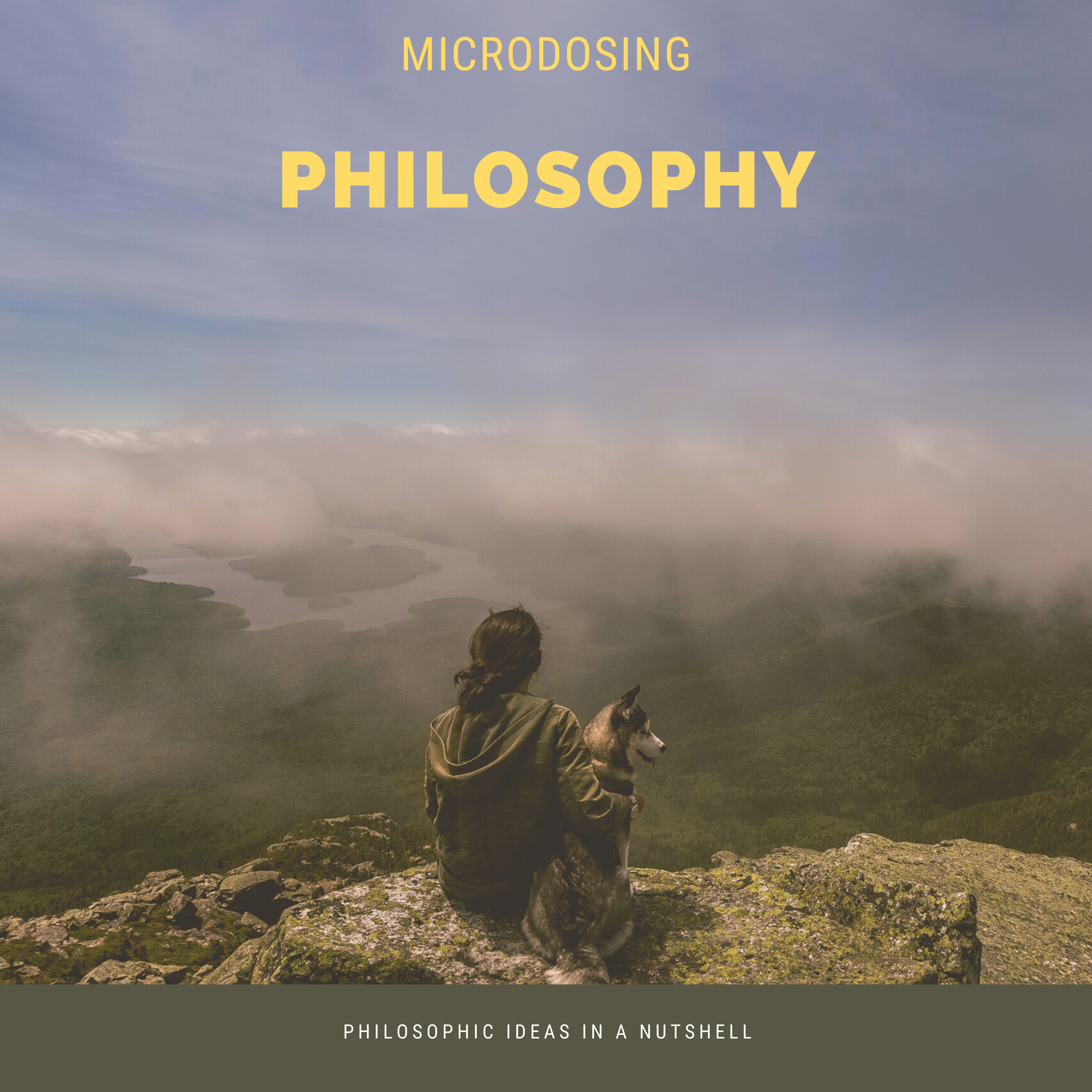Podcast Profile: Microdosing Philosophy
 Site • RSS • Apple Podcasts
Site • RSS • Apple Podcasts34 episodes
2020 to 2024
Median: 9 minutes
Collection: Philosophy

 Site • RSS • Apple Podcasts
Site • RSS • Apple PodcastsDescription (podcaster-provided):
I will discuss some of the great philosophers and their ideas on ethics and metaphysics. Classcial philosphy is always my starting point; Plato and Aristotle will start things, but I will discuss various Hellenistic schools, and more modern thinker such as Mill , Kany, Nietzsche, and Whitehead.Themes and summary (AI-generated based on podcaster-provided show and episode descriptions):
➤ Classical philosophy survey • Plato/Socrates/Aristotle • Hellenistic schools: Stoicism, Epicureanism, Plotinus • ethics: utilitarianism, Kantian duty, relativism • logic: syllogisms, propositions • rhetoric: Aristotle, Bitzer, Booth • Greek divination/seers and pietyThis podcast presents short, course-oriented lectures that introduce major figures and recurring questions in philosophy, with an emphasis on ethics and related metaphysical background. Much of the material begins in ancient Greek thought, using Socrates and Plato to frame philosophical inquiry through dialogues that probe definitions, expose assumptions, and model argumentative exchange. Along the way, the show highlights how topics like piety, the nature of the soul, and the search for stable moral standards connect ethical debates to deeper issues about reality, knowledge, and the Forms.
A substantial portion of the podcast also serves as a guided tour of Aristotle’s explanatory framework, including the analysis of change through the four causes, accounts of substance and form, and an examination of psyche and intellect. From there, attention shifts to later classical and Hellenistic schools, treating approaches such as Stoicism and Epicureanism and including late antique developments like Plotinus’s rational mysticism.
In addition to historical coverage, the podcast builds practical philosophical skills. Several episodes introduce core tools of logic and critical thinking, including how to distinguish statements and propositions, assess validity versus soundness, work with categorical statement types and negations, evaluate syllogisms, and understand basic “if…then” argument forms. These logical topics are complemented by a sequence on rhetoric that moves from Aristotle’s modes of persuasion to modern rhetorical theory, examining how audience, exigence, and constraints shape persuasive situations and how communicators balance appeals.
Modern ethical theory appears through discussions of utilitarianism in Bentham and Mill, including the role of consequences, pleasure and pain calculations, and debates over higher versus lower pleasures. The podcast also covers Kantian ethics, focusing on duty, the good will, and the categorical imperative, set against the challenge posed by Humean empiricism. Overall, the episodes combine philosophical history with conceptual analysis aimed at helping listeners read arguments closely and understand how ethical theories are constructed and defended.